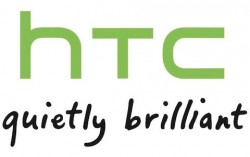 The Federal Trade commission has announced its verdict on the case of HTC’s role in the Carrier IQ user information logging scandal which broke last year and triggered an industry-wide examination on how the data logging application is used by both carriers and manufacturers alike.
The Federal Trade commission has announced its verdict on the case of HTC’s role in the Carrier IQ user information logging scandal which broke last year and triggered an industry-wide examination on how the data logging application is used by both carriers and manufacturers alike.
The case was sparked by multiple investigations launched in late 2011 when the HTC Android hacking community discovered that select HTC models were logging more than diagnostic data within the Carrier IQ application, which was found to be embedded at the system level and ran silently in the background of many smartphone models sold by multiple carriers without explicit mention by either HTC or the carriers themselves.
The real controversy started shortly after the discovery when it was found that certain builds of Carrier IQ and HTC’s HTCLogger logged information such as SMS/MMS messages, contact info and contained further vulnerabilities that were undisclosed that would allow even more dangerous activity, such as capturing audio and featuring easily abused exploits that would be easily targeted by malware, which is the crux of the FTC verdict.
Below, the verdict itself:
Mobile device manufacturer HTC America has agreed to settle Federal Trade Commission charges that the company failed to take reasonable steps to secure the software it developed for its smartphones and tablet computers, introducing security flaws that placed sensitive information about millions of consumers at risk.
The settlement requires HTC America to develop and release software patches to fix vulnerabilities found in millions of HTC devices. In addition, the settlement requires HTC America to establish a comprehensive security program designed to address security risks during the development of HTC devices and to undergo independent security assessments every other year for the next 20 years.
HTC America, Inc., a leading mobile device manufacturer in the United States, develops and manufactures mobile devices based on the Android, Windows Mobile, and Windows Phone operating systems. HTC America has customized the software on these devices in order to differentiate itself from competitors and to comply with the requirements of mobile network operators.
The Commission charged that HTC America failed to employ reasonable and appropriate security practices in the design and customization of the software on its mobile devices. Among other things, the complaint alleged that HTC America failed to provide its engineering staff with adequate security training, failed to review or test the software on its mobile devices for potential security vulnerabilities, failed to follow well-known and commonly accepted secure coding practices, and failed to establish a process for receiving and addressing vulnerability reports from third parties.
To illustrate the consequences of these alleged failures, the FTC’s complaint details several vulnerabilities found on HTC’s devices, including the insecure implementation of two logging applications – Carrier IQ and HTC Loggers – as well as programming flaws that would allow third-party applications to bypass Android’s permission-based security model.
Due to these vulnerabilities, the FTC charged, millions of HTC devices compromised sensitive device functionality, potentially permitting malicious applications to send text messages, record audio, and even install additional malware onto a consumer’s device, all without the user’s knowledge or consent.
The FTC alleged that malware placed on consumers’ devices without their permission could be used to record and transmit information entered into or stored on the device, including, for example, financial account numbers and related access codes or medical information such as text messages received from healthcare providers and calendar entries concerning doctor’s appointments.
In addition, malicious applications could exploit the vulnerabilities on HTC devices to gain unauthorized access to a variety of other sensitive information, such as the user’s geolocation information and the contents of the user’s text messages.
Moreover, the complaint alleged that the user manuals for HTC Android-based devices contained deceptive representations, and that the user interface for the company’s Tell HTC application was also deceptive. In both cases, the security vulnerabilities in HTC Android-based devices undermined consent mechanisms that would have otherwise prevented unauthorized access or transmission of sensitive information.
The settlement not only requires the establishment of a comprehensive security program, but also prohibits HTC America from making any false or misleading statements about the security and privacy of consumers’ data on HTC devices. HTC America and its network operator partners are also in the process of deploying the security patches required by the settlement to consumers’ devices. Many consumers have already received the required security updates. The FTC encourages consumers to apply the updates as soon as possible.
The settlement with HTC America is part of the FTC’s ongoing effort to ensure that companies secure the software and devices that they ship to consumers. Earlier this month, the FTC introduced Mobile App Developers: Start with Security, a new business guide that encourages app developers to aim for reasonable data security. In addition, on June 4, 2013, the Commission will host a public forum on malware and other mobile security threats in order to examine the security of existing and developing mobile technologies and the roles that various members of the mobile ecosystem can play in protecting consumers.
The Commission vote to accept the consent agreement package containing the proposed consent order for public comment was 3-0-2, with Chairman Jon Leibowitz not participating and Commissioner Maureen Ohlhausen recused.
The FTC will publish a description of the consent agreement package in the Federal Register shortly. The agreement will be subject to public comment for 30 days, beginning today and continuing through March 22, after which the Commission will decide whether to make the proposed consent order final.
As mentioned above, most of the devices affected have already received or will receive updates to address the aforementioned vulnerabilities, but the verdict does not spell out additional explicit legal or financial penalties.